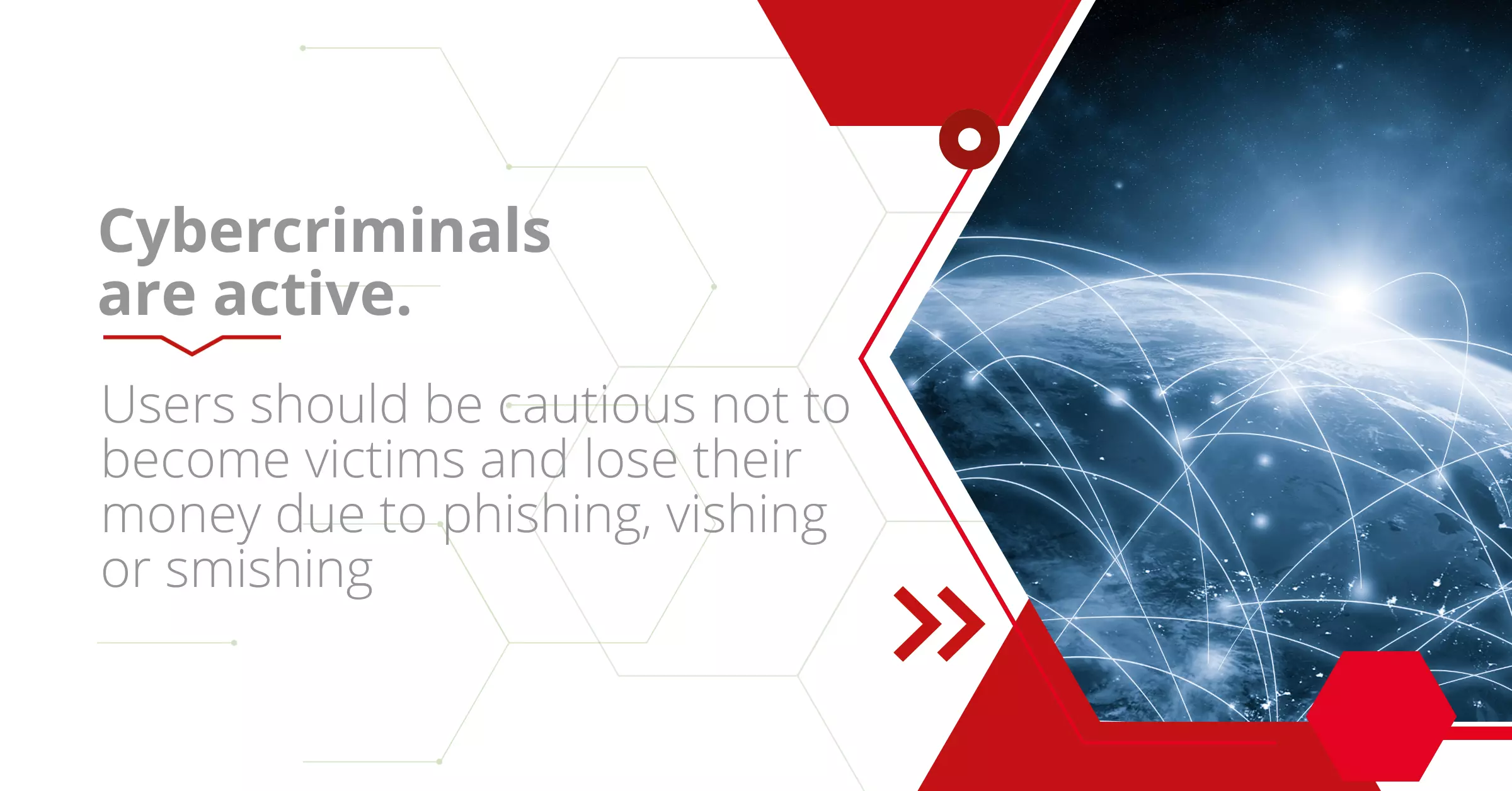Cybercrime – how to protect yourself and your data?
Phone and Internet crimes are no longer just ideas for a fascinating action movie scenario. Nowadays, their number increases day by day. Detectability is still low and the range of solutions used by criminals continues to expand.
In today’s text we would like to look at the most common strategies used by thieves in phone networks. In many situations, knowledge can help save data and protect phone users from theft.
Financial cybercrimes online – a few statistics
Experts are sounding the alarm. According to specialists from CERT Poland, as many as 182% more attacks by e-criminals were recorded in 2021 than in the previous year. For a long time, the most popular type of fraud has remained phishing (more than 76% of all incidents recorded by CERT), involving extortion of data necessary to log in to social networks, use of fake payment gateways, etc. Scams related to cryptocurrency investments have also become increasingly common.
What other scams have gained popularity? Ransomware has become a new form of crime. It is malware designed to encrypt important files on a user’s local and network drives and then demand a ransom to unlock them. One can even encounter the Ransome as a Service model of operation, in which criminals transfer malware to other criminals for a fee.
The most common methods of scammers and how to protect yourself from them
Since the forms of attack are so elaborate and varied, how can you defend yourself against them? The most effective method remains education and far-reaching caution, which in many situations allows you to protect yourself from dangerous situations, theft, and, as a result, loss of property.
Phishing – extortion of data and money theft
As we have already mentioned, the most common way of online scamming is phishing, which involves stealing login credentials for, say, online banking. Victims may receive an email or an SMS message with a link redirecting them to a fake login page. A specific form of phishing is spear phishing, in which a message is sent to one precisely selected victim.
How to protect yourself from phishing? The most important rule is not to click the links found in SMS messages and emails and to check their senders. You should also always carefully verify all login page addresses to make sure they are genuine. Applications associated with banking and financial institutions must be downloaded only from the service provider’s website or official stores, which minimizes the risk of attack.
Smishing – a text message variant of phishing
Smishing is nothing more than a variation of phishing related to phone text messages designed to convince the victim to use a fake login page and leave valuable data on it, which will allow criminals to steal funds.
The rules of defense in this case are almost the same as for phishing. Do not click on links in messages, let alone provide your login credentials, especially if you have been redirected to a site that arouses distrust.
Vishing – telephone scams
Victims of vishing are robbed over the phone. All it takes is a call from a person claiming to be an employee of a bank, the police, or another service. Most often, they talk about new offers or inform you about a problem that they can help with if you click on the link they sent. Of course, all this is done in order to lead you to a fake site, where you enter your bank account details. Sometimes the victim is also encouraged to install a special application that will help deal with specific difficulties. However, most often it is malware, which allows the thieves to gain access to banking applications and wipe out their victim’s account.
To protect yourself and your money, it is advisable to be extra cautious when speaking with representatives of various institutions. Particular vigilance should be aroused by requests for sensitive data or insistence on installing supporting software. In accordance with the recommendations of the Financial Supervisory Commission, financial institutions in our country do not ask their customers to install troubleshooting software (such as special antivirus programs).
Spoofing – counterfeiting an existing number
Sometimes cybercriminals use the phone numbers of real subscribers, especially institutions, for their operations. They make calls from these numbers and try to convince victims to take advantage of investments or install specific software. To carry out such a crime, they use Internet gateways which allow them to call from a selected number that arouses trust in the recipients.
Once again, extreme caution should be exercised, and under no circumstances should you give out sensitive data during the call, let alone install the proposed software.
How should telephone providers protect themselves?
Cybercrime is a serious threat not only to residential customers, but also to telephony providers. To protect themselves from cybercrime, telecom providers can take several important measures to increase the security of their customers.
First and foremost, they should implement strong network security, such as firewalls, incident detection and response, security monitoring, or identity verification and encryption. Another aspect is regular software and system updates, which should prevent security breaches.
It’s also worth ensuring that appropriate security policies are in place, such as enforcing strong passwords, blocking unknown devices, restricting access to data, and monitoring user performance to prevent unauthorized activity.
A proven way to reduce the risk of cyber-attacks is by conducting security audits to identify vulnerabilities in the IT infrastructure and ensure that systems are compliant with security regulations. In addition, it’s also worth mentioning the need for cyber security training for employees and cooperation with law enforcement agencies to detect and combat cybercrime.
Cyber security – caution and limited trust
Cybercriminals never rest on their laurels. New methods and attempts to steal via the Internet and phone calls are constantly emerging. Therefore, as individuals, we should be cautious and always use software from verified sources. This can protect us from serious consequences and painful losses. On the other hand, telephony providers should focus on securing their networks by implementing strong security measures, regularly updating systems and software, implementing security policies, training employees, cooperating with law enforcement agencies, and regular security audits, which significantly minimize the chances of cyber-attacks.





